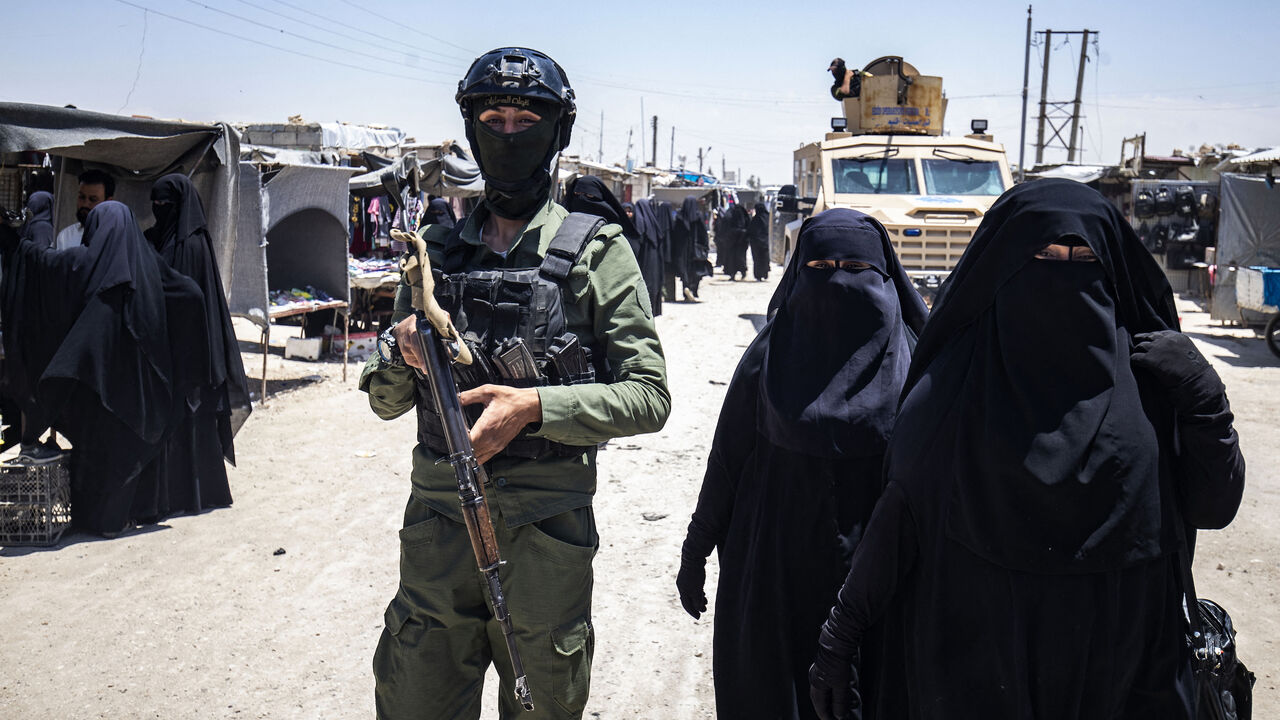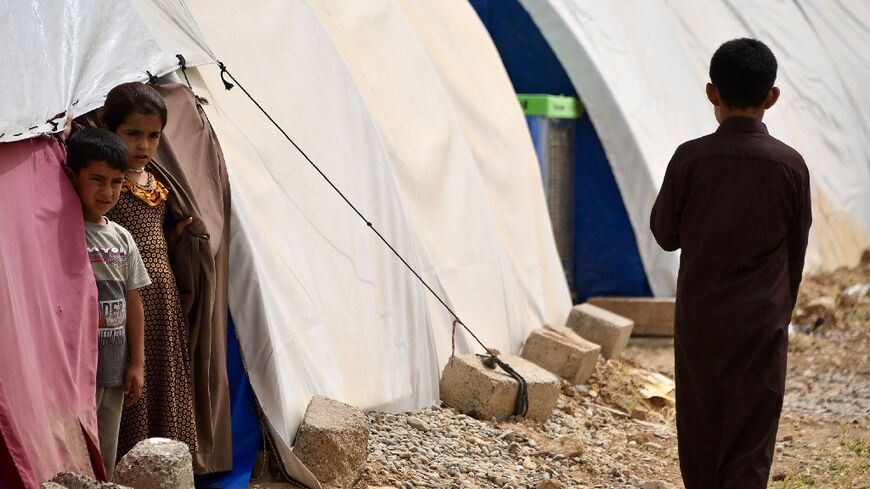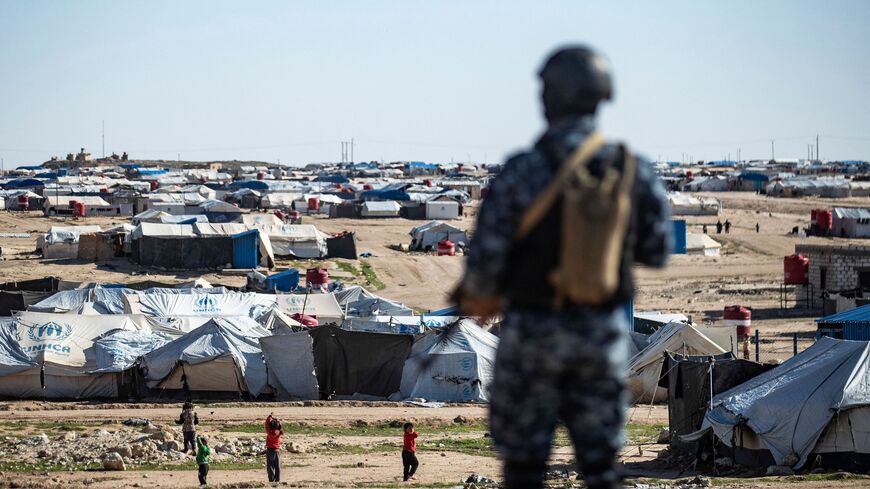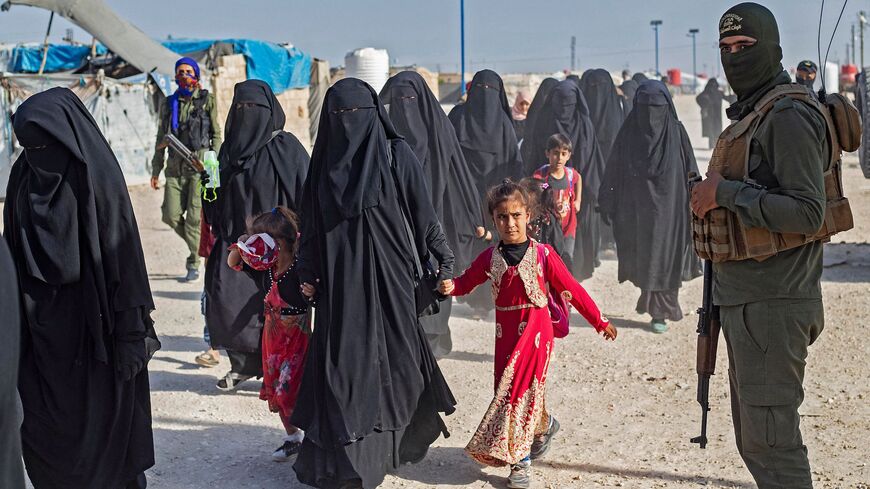US repatriates 11 Americans held in northeast Syria
Five years after the Islamic State lost its final stronghold in Syria, tens of thousands of women and children remain stranded in detention camps in the country's northeast.

WASHINGTON — The US government announced Tuesday it had repatriated 11 US citizens, including five minors, from camps in northeast Syria that house families of suspected Islamic State fighters. Secretary of State Antony Blinken called their transfer the largest such repatriation of Americans to date.
Five years after ISIS lost its last remaining territory in Syria, tens of thousands of suspected fighters and their families are packed into makeshift detention centers and desert camps under the control of US-backed Syrian Kurdish fighters who say they lack the resources to indefinitely hold them.
As part of the repatriations announced Tuesday, Washington resettled in the United States a 9-year-old non-US citizen sibling of one of the American minors. It also facilitated the repatriation of six Canadian citizens, four Dutch citizens and one Finnish citizen.
The State Department did not identify the returned individuals, but the New York Times reports that 10 of them belong to the same family. They include a 50-year-old woman named Brandy Salman and her nine American-born children whose ages range from about 6 to 25, the outlet said.
Two young sons of Abelhamid Al-Madioum, a Minnesota man who pleaded guilty in 2021 to supporting ISIS, were also reportedly repatriated on Tuesday.
Many foreign governments have dragged their feet or flat-out refused to repatriate their nationals stranded in northern Syria, including in the squalid al-Hol and Roj camps for women and children in Hasakah province near Iraq. According to the State Department, the two camps house more than 30,000 people from more than 60 countries. A majority of them are children.
Countries have been especially slow to repatriate men suspected of ISIS involvement, citing concerns that a lack of battlefield evidence against them would make prosecutions difficult.
Blinken said in a statement Tuesday the only “durable solution” to the crisis "is for countries to repatriate, rehabilitate, reintegrate and where appropriate, ensure accountability for wrongdoing."
“As governments undertake repatriation of their nationals, we urge thoughtfulness and flexibility to ensure that to the maximum extent possible family units remain intact,” Blinken said.
In March 2019, the Kurdish-led Syrian Democratic Forces captured the ISIS stronghold of Baghouz and declared an end to the group's self-declared caliphate that stretched across Syria and Iraq. Some 10,000 captured men remain jailed in SDF-run detention centers, including roughly 2,000 foreign fighters whose governments refuse to repatriate and prosecute them.
Experts warn the detention sites could serve as a breeding ground for a new generation of terrorists and stateless children. The Kurdish-led authority in northeast Syria has long asked the United States and coalition partners for more support in securing the detention facilities.
ISIS no longer controls territory in Syria and Iraq but has sought to reconstitute itself with a low-level insurgency in both countries. One of its affiliates claimed responsibility for a March massacre at a concert hall in Moscow that killed more than 140 people.
This developing story has been updated since initial publication.




